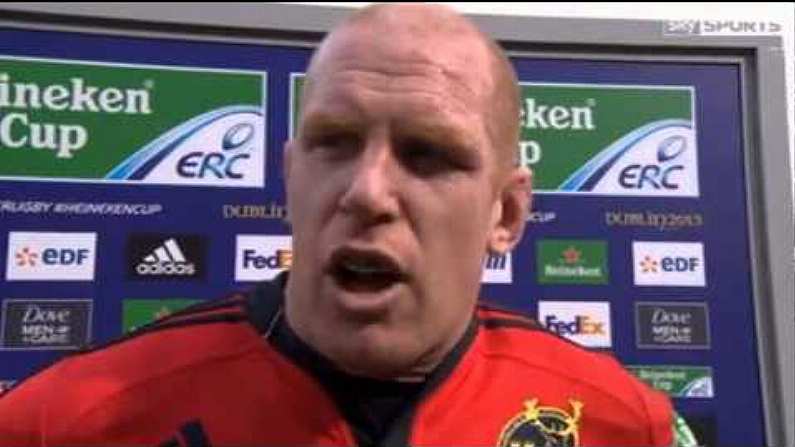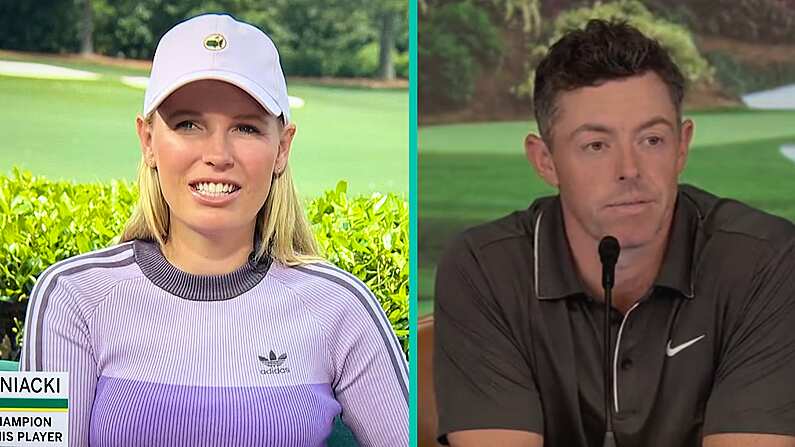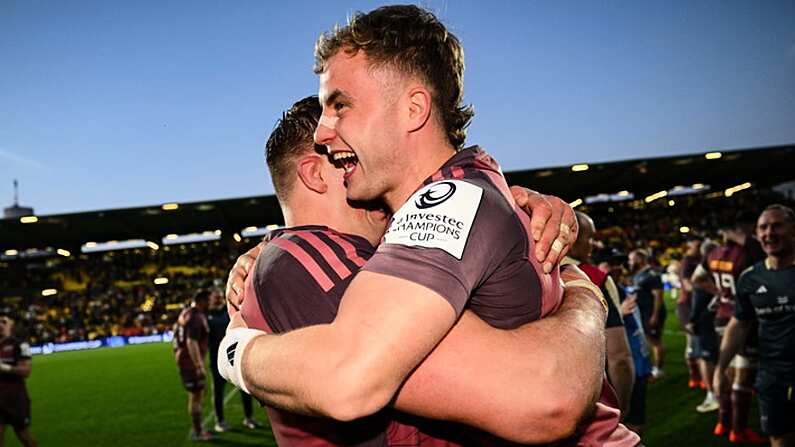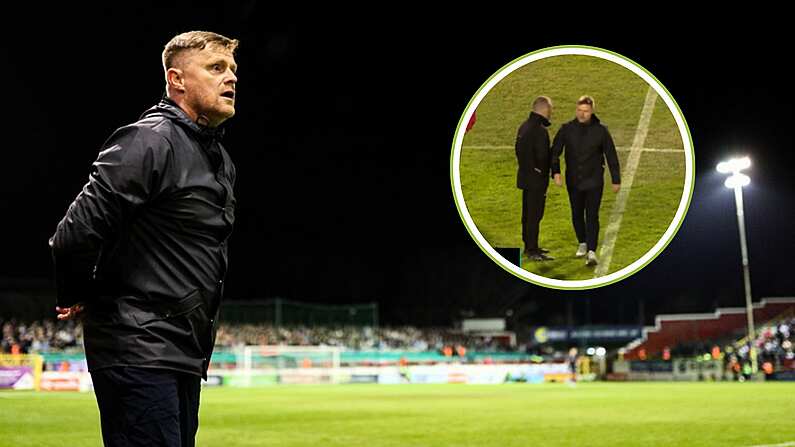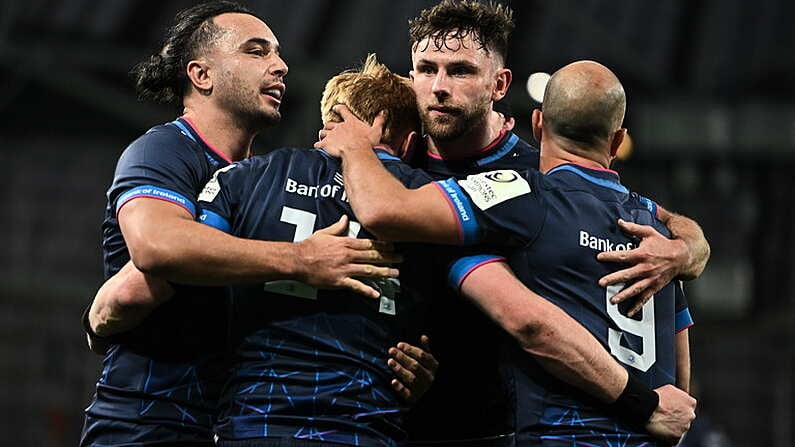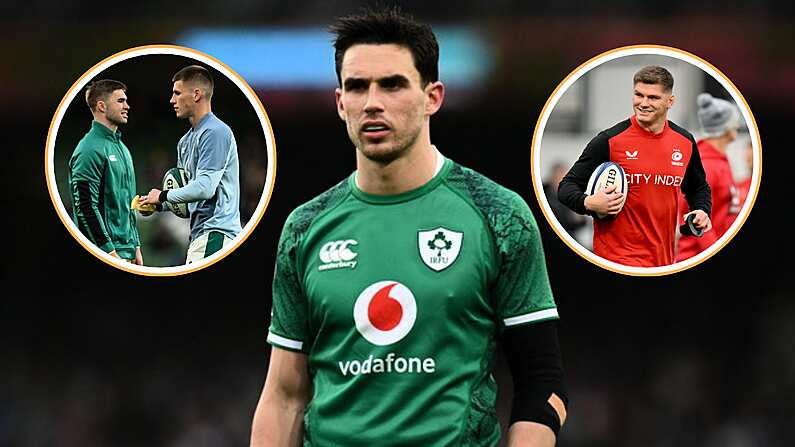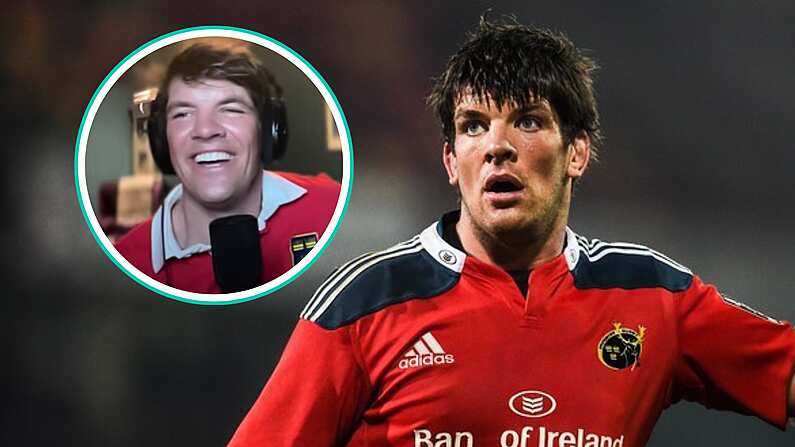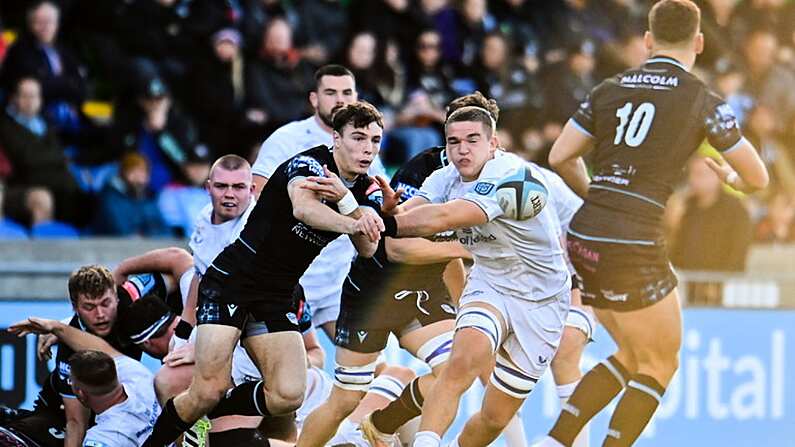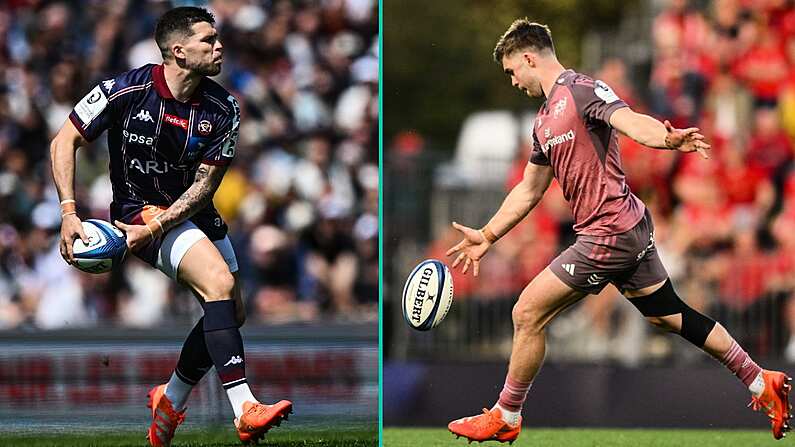Manic aggression
I wish I could have been sagacious and predicted a famous Munster victory but this was a win that flew in the face of much of Munster's season (especially away from Thomond Park). But this is the Heineken Cup, this is different. Harlequins are a good team and had signaled during the week their intention to play rugby but when things weren't going their way with the ball the failed to produce any answers. Under Munster pressure their discipline in their own half was poor. And a famous victory in England was born. It's been a long while since Munster ended a weekend as the most satisfied of the provinces.
It's not rocket science to point to the backrow battle as key on the day and Munster's loose forwards outplayed their counterparts at the breakdown, the lineout and across the park. Munster's best chance was always going to be to turn the game into an arm wrestle and stifle Harlequins creative instincts. Their dominance of the collision area and the breakdown, especially in the first 20mins of the second half, swung the game to the Red corner.
While the narrative may be play up passion and intensity, Munster's performance was all about accuracy. Lineout success 100%, Scrums on own feed 100%, Ruck success 100%. And perhaps most tellingly the team tackle success rate was 96% and the pack didn't miss a single tackle.
Except for David Kilcoyne the forwards that played in London were the ones that started last seasons quarter final loss to Ulster in Thomond. On that day, Chris Henry caused havoc at the breakdown and Munster failed to cope. Tommy O'Donnell made his first HCup start in that quarter final and looked out of his depth. Roll on 12 months and the openside outplayed the England and proposed Lions captain Chris Robshaw on his own patch. Peter O'Mahony's manic aggression (see him ripping the ball, in the air, on the opposition throw) has been notably more focused since the middle of the Six Nations, less silly pushing and shoving.
And then there was Paul O'Connell. There have been serious worries about the big man for the majority of the past year; would he ever pull on a red or green jersey again and if he did could he be the force of old? But yesterday was men and boys stuff, not just towering over the opposition but also the awe and reverence his own teammates hold for him (check out Simon Zebo boyishly embracing his captain at the final whistle). O'Connell allowed himself a rare moment of celebration with his point to the sky in a demonstration of just how big a win this was and just how much it meant.
And so Munster have earned themselves a shot at the toughest game in European rugby right now, away to Clermont. Underdogs, again.
Ash-splash, and other indignities
What a feast of rugby we had in what is one of my favourite weekends of the rugby year. At Adams Park, Wasps and Leinster served up an amuse bouche that stimulated the rugby taste buds but ultimately, lacked substance due to both sides’ decision to take it easy on the ‘D’. The attacking rugby, which yielded 9 tries in all, was great to watch with Madigan and Wade the obvious stars. The Wasps winger proves the old adage that speed kills and to watch the havoc he wreaked against a quality Leinster defence made one wonder how he hasn’t been capped by England yet. With Gatland looking on from the stand, Wade must be a potential bolter for the Lions – I would love to see him make the trip.
Unsurprisingly, Clermont served up something altogether more substantial, steamrollering a game Montpellier at the Stade Marcel Michelin, in the process displaying the power and precision that has made them the clear favourites to lift the trophy at the Aviva on 18th May.
And so to Twickenham for my first experience of the Saracens match day experience. Regrettably, the best way to describe it is gruelling. The infantile ‘Stand Up, Stand Up’ and ‘Here We Go’ - two ‘tunes’ that would be sure to garner ‘null points’ at Eurovision - are like fingernails on a blackboard and the Fezmen’s style of rugby is only marginally less painful.
However, what Saracens lack in style, they more that make up for in substance and Ulster couldn’t find a way past them. The Saracen’s defence is extremely good and Borthwick is peerless in his leadership of the lineout. Consequently, Ulster struggled to secure their own ball out of touch, Borthwick reading Muller’s calls so well that one steal looked like he had called it to himself. When Ulster did get good ball, Saracens’ defensive line was so quick that Ulster struggled to make any headway and committed far too many errors whilst trying to do so. Taking full advantage of Monsieur Poite’s laissez-faire interpretation of the breakdown, the home team delayed Ulster’s ball long enough to ensure that their defence was well set. On the few occasions that Ulster did get in behind them, Saracen’s scramble defence was excellent.
Despite this, the stats for possession and territory were finely balanced at half-time and, had Pienaar brought his kicking boots, Ulster could have been in the lead at the break. However, Saracens scored a fortuitous try on 33 minutes after they were wrongly awarded a lineout in Ulster’s 22 from which a maul that seemed to stall more than once crossed the line in a heap. It seemed to me that Poite’s initial signal was that the ball had been held up but then he asked the TMO if there was any reason he could not award the try. The replays appeared to show no evidence of a touchdown, but given the question, the decision to award the try was correct.
As Anscombe conceded after the game, it was not the officials, but Ulster that were to blame by failing to clear their lines at the re-start. Payne had fielded the kick-off and opted to run out of defence only for his pass to Gilroy to end up in touch (off the undetected hand of Joubert). Previously, after Pienaar had levelled at 3-3, Jackson was inexplicably left to field the re-start and was duly nailed by Barritt and conceded the penalty.
Shortly after half-time, the nigh on flawless Farrell kicked another penalty and Ulster found themselves 10 points behind. Saracens continued their tactic of kicking the ball to Ulster and letting the men in white make the errors. Their kick chase was excellent, the chasers more often that not arriving at the same time as the ball, whereas too many of Ulster’s kicks gave Goode time to clear his lines.
The low point of the afternoon came when an inside pass from the otherwise outstanding Iain Henderson was intercepted, Goode and Barritt combined to feed Ashton who accelerated around Jared Payne, displaying some of the form that had deserted him during the 6 Nations, and headed for the try-line. At that point my heart sank at the idea of the Ash-splash and the hard-to-love winger didn’t disappoint.
Surprisingly Farrell failed to convert but by then the lead was 18 points and the game was over with 16 minutes to go. To their credit, Ulster didn’t relent and played their best rugby in the final quarter. Tommy Bowe, who had replaced Cave just before Ashton’s try, sought to get involved at every opportunity and looked every inch the Lions test starter that he ought to be. Nick the Brick started to rumble more effectively and one run over Farrell was particularly satisfying. Stuart Olding, on for the luckless Luke Marshall, whose third knock-out in as many outings should result in an extended lay-off, looked very classy. He was involved more than once in the build up to Henderson’s try which was by far the best bit of rugby of the match and well deserved reward for the young lock-cum-flanker who was Ulster’s best player.
In an impressively candid post match press conference, Mark Anscombe acknowledged that Ulster had lost to the better team and was disappointed that they had performed below par. Whilst not making any excuses, he felt that they could have done with getting their first team players back a couple of games earlier if they were to be in a position to challenge a side of Saracens’ quality. Chris Henry struggled to explain why they had come off second best at the breakdown, and wondered whether the win over Leinster had taken more out of the team than they thought.
Fortunately, I didn’t have to wait long for my mood to be lifted. Munster’s victory across the road at the Stoop was absolutely magnificent – surely every bit as impressive as the miracle win over Gloucester 10 years ago. Paul O’Connell was a colossus, ruling the lineout and drawing performances from his team-mates that seemed barely possible given the recent evidence. The scale of the improvement from last weekend’s drubbing at Scotstoun was extraordinary. I thought Downey had his finest outing in a red shirt and ROG had his best game in ages, despite missing two kickable penalties early on. The back row played their much-vaunted opponents off the park with O’Mahony in particular fully justifying the ‘special comments’ of Frankie Sheahan.
The reward for Munster will be a trip to Montpellier to play Clermont, which is an even more impossible mission -just how they like it so I will not be risking any of my money backing against them, even if logic suggests a comfortable win for the yellow army. Saracens will host Toulon who held off an excellent Leicester thanks to a kicking master-class by Jonny Wilkinson. The result will be tough to call but I am happy to predict that it is unlikely to be an entertaining spectacle.


